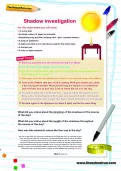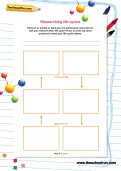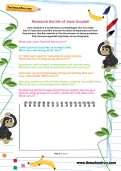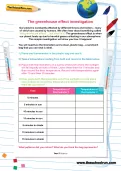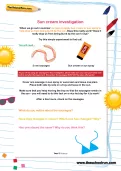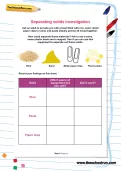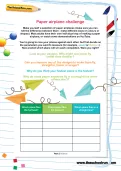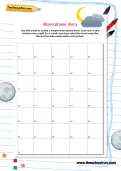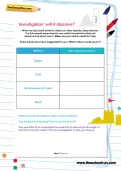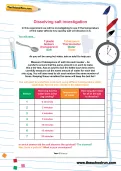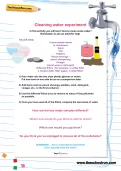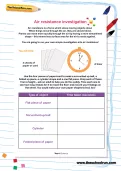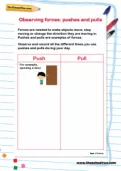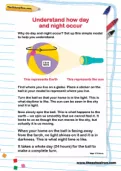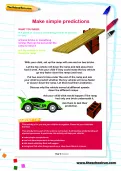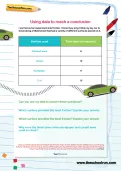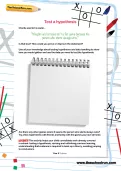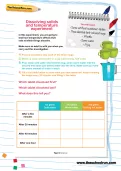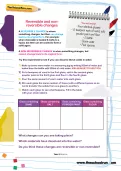Year 5 Investigative skills worksheets
Shadow investigation
A Year 5 science investigation into shadows and what they can tell us about the position of the Sun in the sky.
Researching life cycles
Think of an animal or plant you are particularly interested in. Can you research their life cycle? Draw or print out some pictures to make your life cycle clearer.
Research the life of Jane Goodall
Jane Goodall is a world-famous primatologist who has made lots of important scientific discoveries about chimpanzees and how they behave. Can you do some research and find the answers to these questions about her life?
The greenhouse effect investigation
Our planet is constantly affected by different forces and factors – many of which are caused by humans. We often hear about something called “the greenhouse effect”… but what is it? The greenhouse effect is when our planet heats up due to harmful gases collecting in our atmosphere. This simple investigation will show you how it happens!
Sun cream investigation
When we go out in summer we have to apply sun cream or sun spray to help stop us from being burnt by the sun. Does this really work? Does it really stop us from being burnt by the sun’s rays? Try this simple experiment to find out!
Separating solids investigation
Ask an adult to provide you with a bowl filled with rice, sand, metal paper clips (or pins) and pasta (ideally penne) all mixed together. How could separate these materials? Ask to use a sieve, some plastic bowls and a magnet. See if you can use this equipment to separate out these solids.
Paper airplane challenge
Make yourself a selection of paper airplanes. You’re going to race your planes against each other, but first decide on the parameters you want to measure (for example, speed or distance). Now predict which plane will win each completion. Were you right?
Moon phase diary
Use this sheet to create a simple moon phase diary. Look out of your window every night for a month and draw what the moon looks like. Record the date underneath each picture.
Investigation: will it dissolve?
When we add some solids to water (or other liquids), they dissolve. Try this simple experiment to see which household solids will dissolve and which won’t.
Identifying good habitats
Try to find four different habitats that animals or minibeasts live in around your house. Make notes on how effective each of these habitats is.
Dissolving salt investigation
In this experiment we will be investigating to see if the temperature of the water affects how quickly salt will dissolve in it.
Cleaning water experiment
In this activity you will learn how to clean some water!
Air resistance investigation
Air resistance is a force which slows moving objects down. When things move through the air, they are slowed down. Planes can move more quickly through the air by having a more streamlined shape – this means less surface area for the air to resist against. Do you fancy having a go at running your own simple investigation into air resistance?
Observing forces – pushes and pulls
A fun worksheet that will help your child grasp the concept of forces.
Understand how day and night occur
An ingenious experiment that will demonstrate how day and night occur in simple terms.
Make simple predictions
This KS2 download will help your child to make simple comparisons and use first-hand experience to test predictions.
Using data to reach a conclusion
This worksheet shows the results of an experiment into friction. It has questions below to prompt children to think about what the results mean and draw their own conclusions.
Test a hypothesis
A hypothesis about the game noughts and crosses which prompts children to find their own method to prove or disprove the initial statement.
Dissolving solids and temperature experiment
This experiment helps children to think about how to methodically carry out an investigation and then draw conclusions about temperature and dissolving from the results.
Reversible and non-reversible changes
This experiment that you can do at home helps your child to understand the difference between a reversible change and a non-reversible change.
